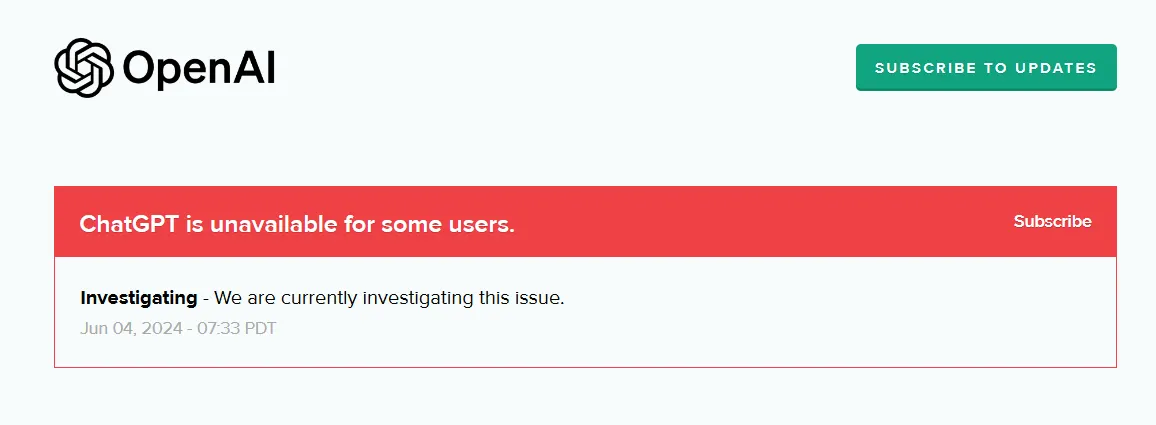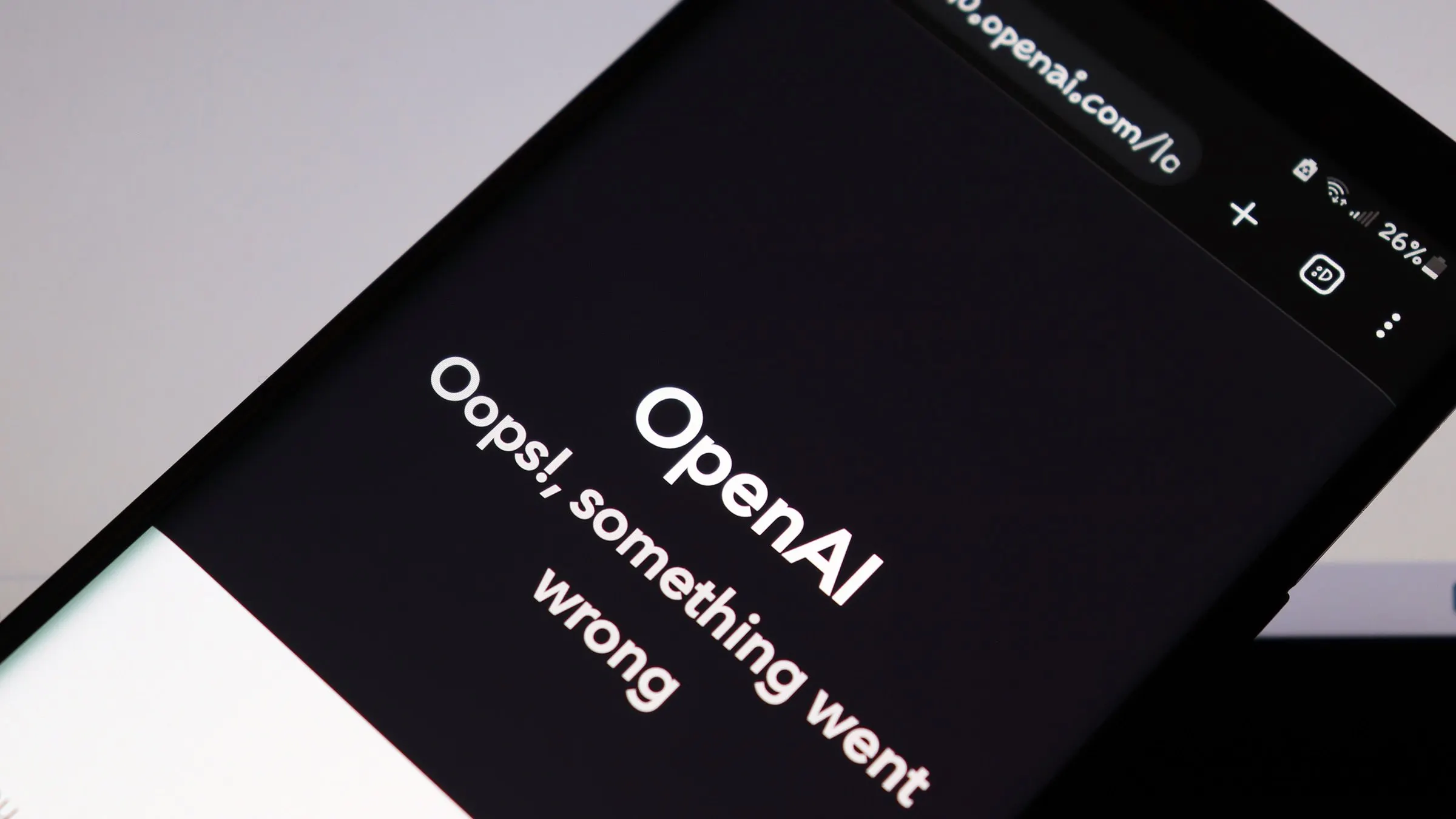The world's most popular AI chatbot has decided to take a break today, leaving users in a lurch. ChatGPT has been offline for a several hours, with the outage beginning early Tuesday at 00:21 PDT.
The issue appears to be most prominent on mobile devices, with the ChatGPT app on Android getting stuck at the login screen, indicating that this is not a platform-wide problem.
According to DownDetector, the most reported issues are with ChatGPT itself, rather than its website or app. While some users have managed to access the service, the majority are facing difficulties. OpenAI, the company behind ChatGPT, has acknowledged the issue on its status page and is currently investigating the cause.

This outage comes on the heels of ChatGPT's recent expansion of GPT-4o access to free users, granting them the same capabilities as paid users. This move may have led to an influx of users, potentially overwhelming the servers. Traffic analytics site Semrush reports that ChatGPT's popularity has surged, making it the 17th most visited website globally in March, with a whopping 2.76 billion visits.
Server overloads and outages are not uncommon in the world of AI tools. To mitigate this, platforms like Claude and ChatGPT often limit the number of interactions users can have with their tools. As users eagerly await the return of the leading AI assistant, it's the perfect time to try other options.
Alternatives to ChatGPT
For those who absolutely need GPT-4o’s capabilities, Microsoft Copilot, which also uses GPT-4o, is currently operational and available on Windows devices. It is also integrated into Microsoft’s Edge browser, or via its standalone website, and even via a mobile app available for iOS and Android.
Those willing to test other waters may want to try Claude, which offers a comparable model in terms of text generation and coding capabilities. Also, Mistral AI’s LeChat provides a robust language model for free, generating high-quality text.
Another contender may be Reka AI's multimodal chatbot, which can understand visual inputs, code, and is capable of generating text with proficiency.
Meta AI's multimodal large language model (LLM) is another free option, although it doesn't generate large amounts of text. It leverages the power of Llama3, the most powerful open-source LLM to date. It is also capable of generating images on the spot, which no other model or chatbot can.
Those willing to get their hands dirty may want to visit Nat.dev and experiment with a bunch of models online. For those who prefer not to send their data to corporate servers, open-source models that can be run on personal computers are worth considering.
Edited by Andrew Hayward

